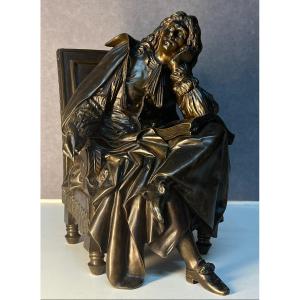Molière is depicted seated in a richly carved armchair, wearing a loose-fitting suit with intricately detailed folds. The careful drapery of his clothing is a testament to Pradier’s talent for capturing the movement and texture of materials in bronze. The deep folds of the fabric fall naturally, mimicking the effect of velvet or silk. The folds add dynamism to the composition while adding a touch of realism. This level of detail demonstrates Pradier’s technical mastery, allowing the viewer to almost feel the texture and weight of the fabrics.
Molière’s expression is equally striking. His slightly inclined head, supported by his left hand, and his pensive gaze convey a certain melancholy or intellectual fatigue, as if he were thinking deeply about one of his works or meditating on an idea. This posture of reflection is accentuated by the quill he holds in his right hand, a clear symbol of his role as a writer. The image of the playwright holding his quill is a classic allegory of intellectual work and literary creation. The quill itself is depicted with exceptional finesse, each detail carefully chiseled in bronze, reflecting flawless technical skill.
The armchair on which Molière sits is not a simple seat, but a work of art in itself. Its square back and armrests are decorated with intricate patterns, including scrolls and fringes carved with great precision. These ornamental details give the armchair a certain majesty, recalling the elegance of period furniture while evoking the social status of Molière, who despite his successes, often had difficult relations with the court of Louis XIV. This luxurious furniture contrasts with the apparent simplicity of Molière's posture, creating a subtle balance between the sumptuous decor and the modesty of the playwright's attitude.
Pradier's signature, visible on the base of the sculpture, is an essential element that attests to the authenticity and quality of this work. Jean-Jacques Pradier (1790-1852), known as James Pradier, was a Swiss sculptor who acquired great renown in France in the 19th century. He was famous for his statues combining a neoclassical style with great naturalistic precision, and his work is particularly appreciated for its finesse and elegance. Pradier often drew inspiration from historical, literary and mythological figures, making him an artist perfectly suited to depicting a figure such as Molière.
This sculpture of Molière is notable for its ability to capture not only the physical likeness of the playwright, but also the very essence of his character and work. The choice to depict Molière seated and pensive can be interpreted as an allusion to the creative tension he experienced as a writer and actor. His works were often the result of deep reflection on society and human nature, and this sculpture reflects this process of intellectual creation.
Finally, this work testifies to the late 19th century taste for literary and historical figures, and the tendency to glorify the great authors of the past by representing them in intellectual or heroic postures. Molière, who is often considered one of the greatest French playwrights, is immortalized here in a work of art that celebrates both his creative genius and his humanity. This sculpture is a valuable piece, not only because of its aesthetic quality, but also as a lasting tribute to one of the most brilliant minds of French theatre.
This sculpture is available for sale in my shop at 57 rue Victor Hugo, 76000 Rouen
Possibility of delivery (ask for a transport quote)
You can follow me on my Instagram by following this link: https://www.instagram.com/patrick.boussougant/
Back to the shop: Online sale of antique objects and furniture, purchase in complete security (abnantiquites.com)







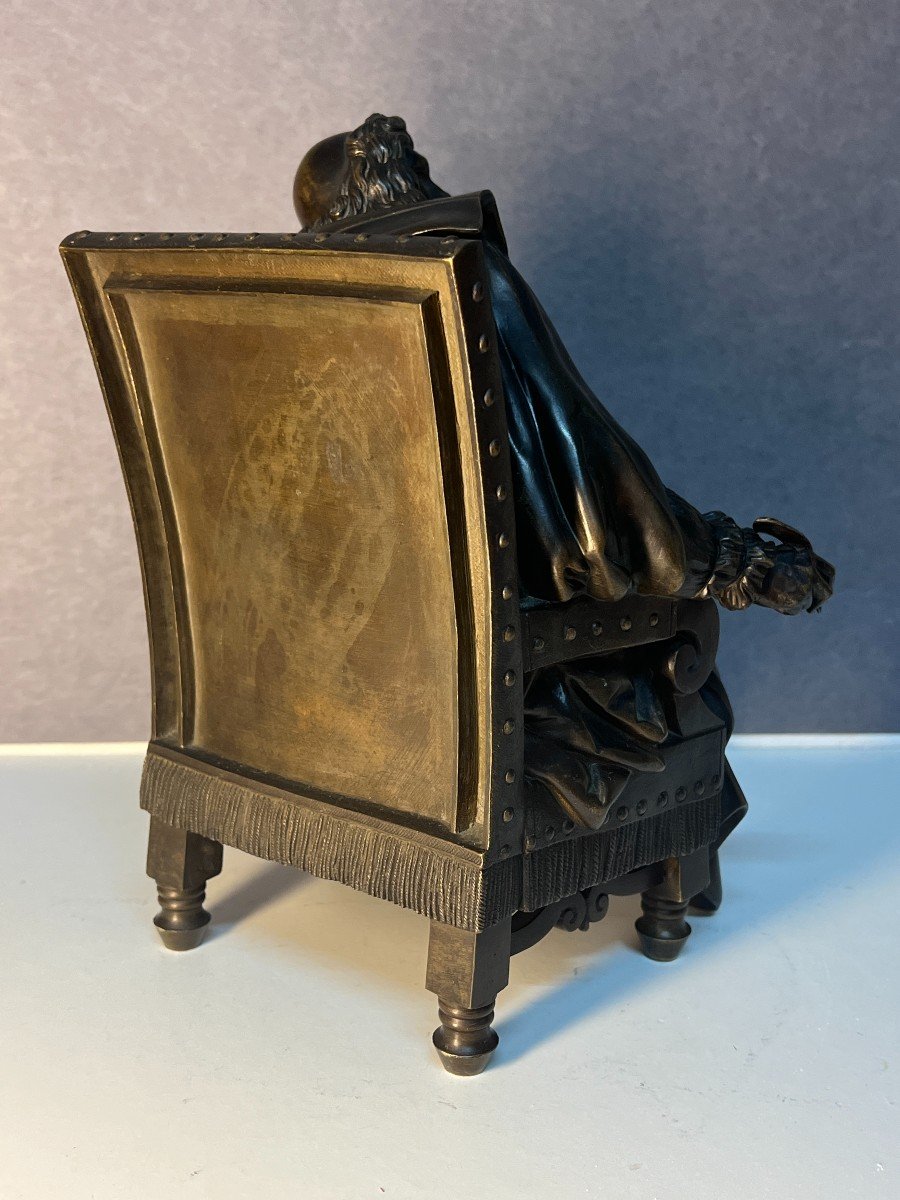
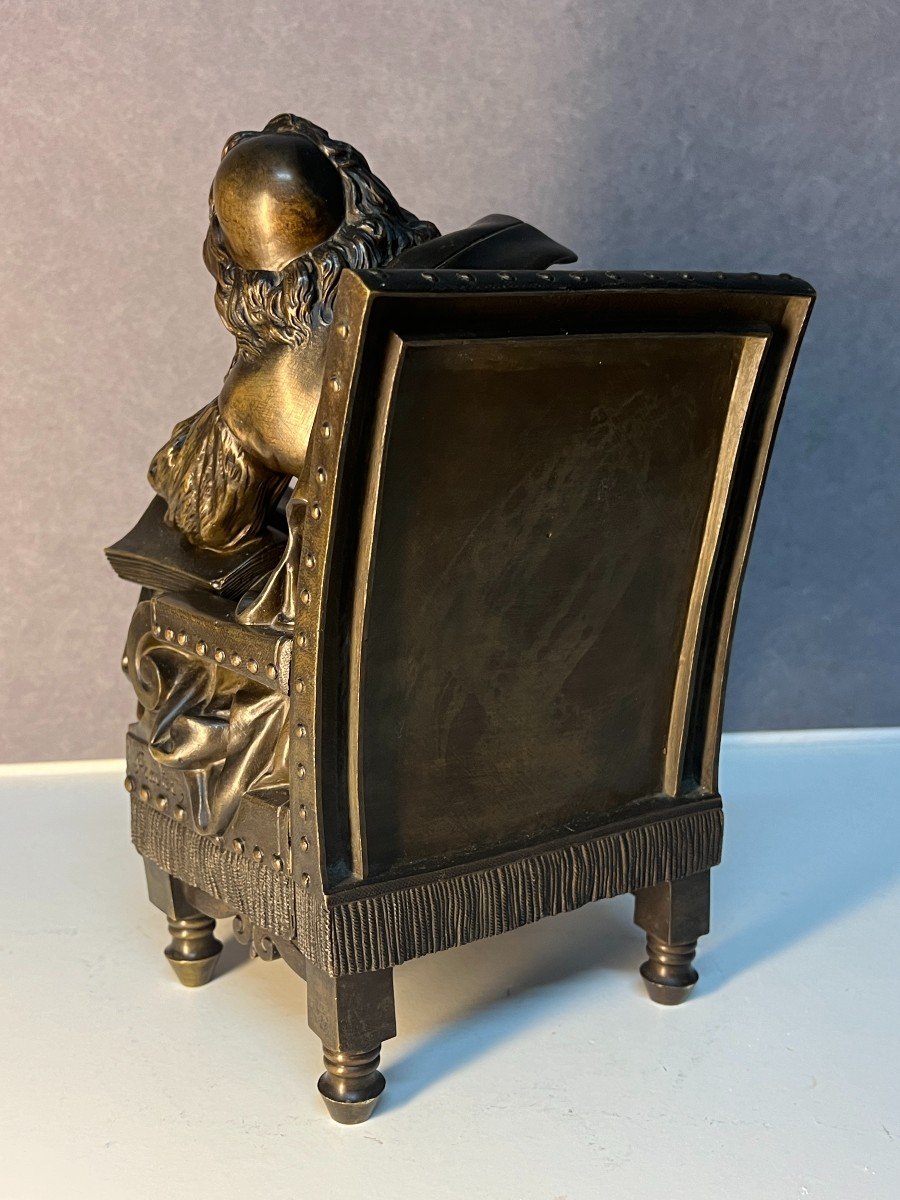
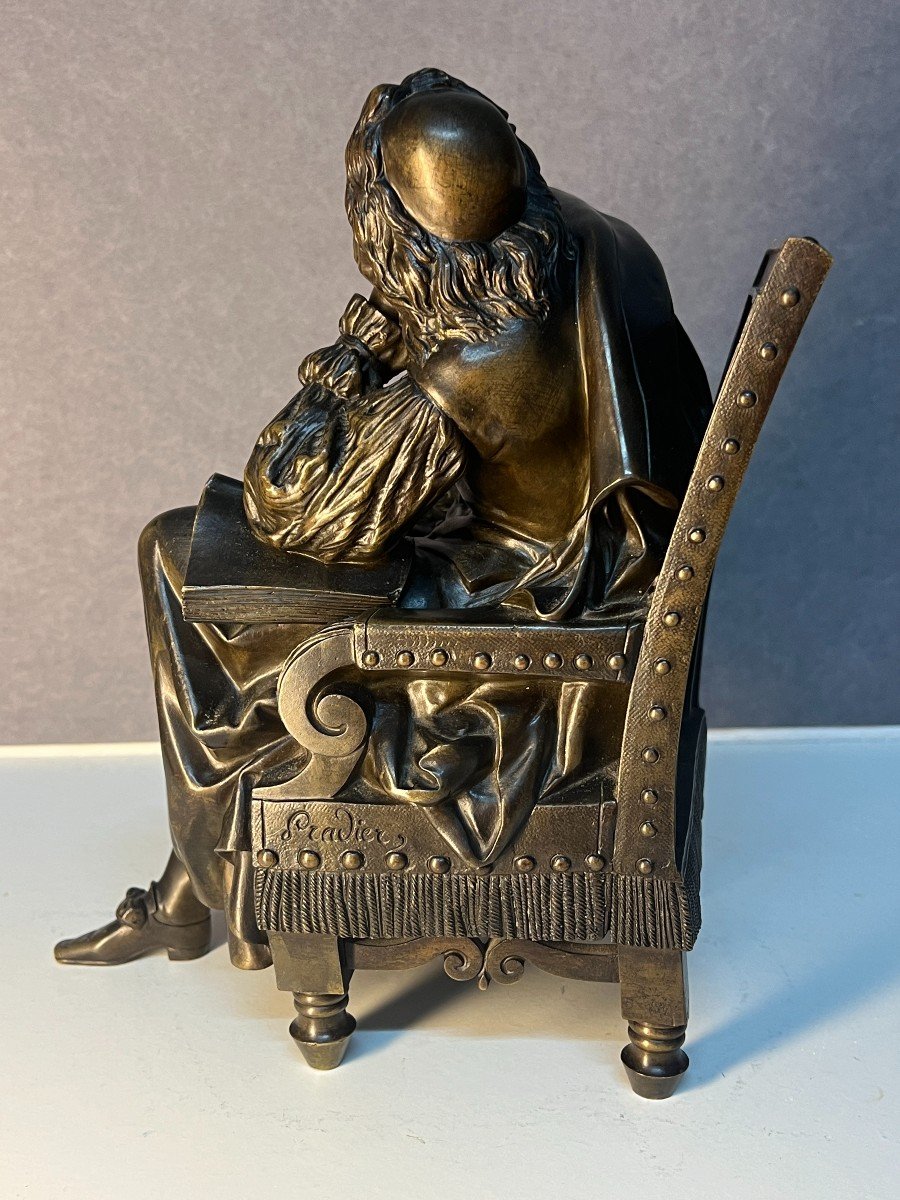
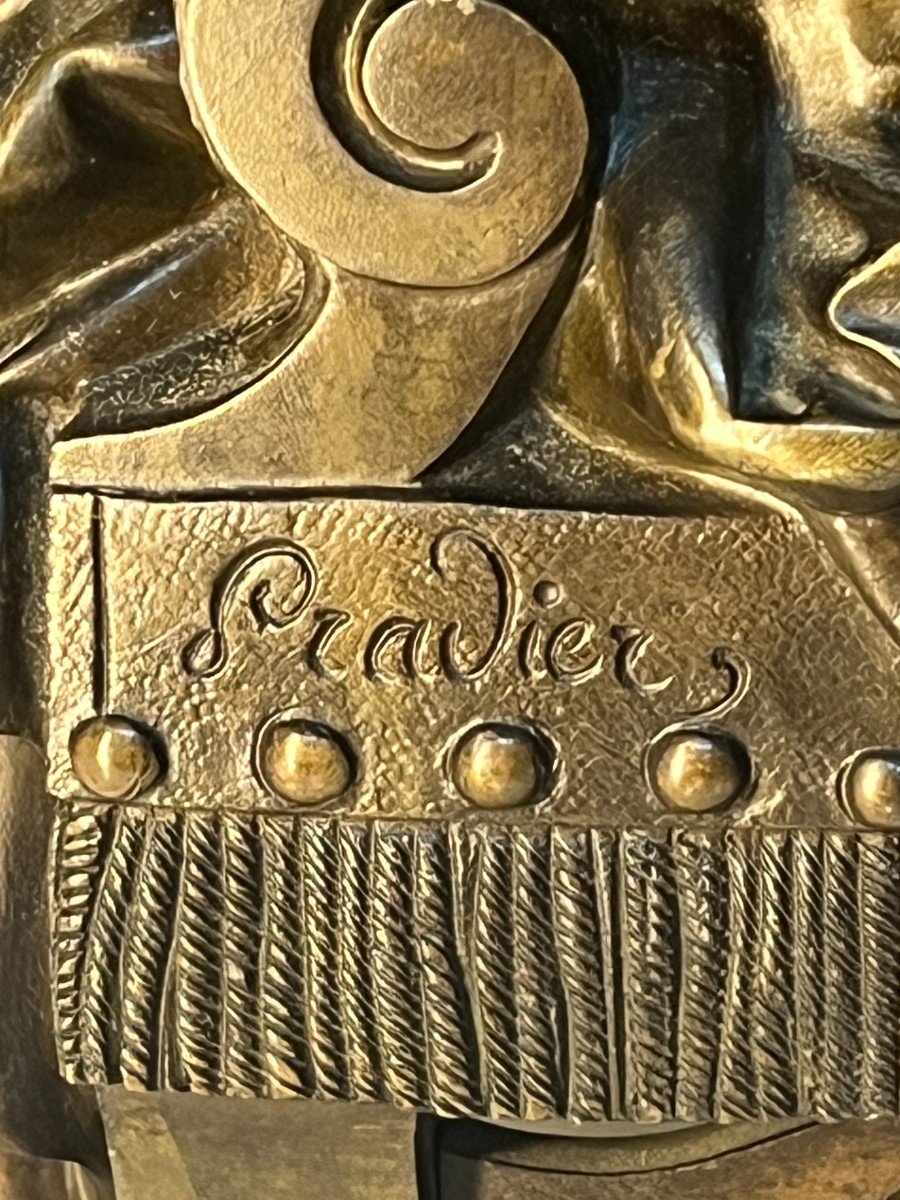



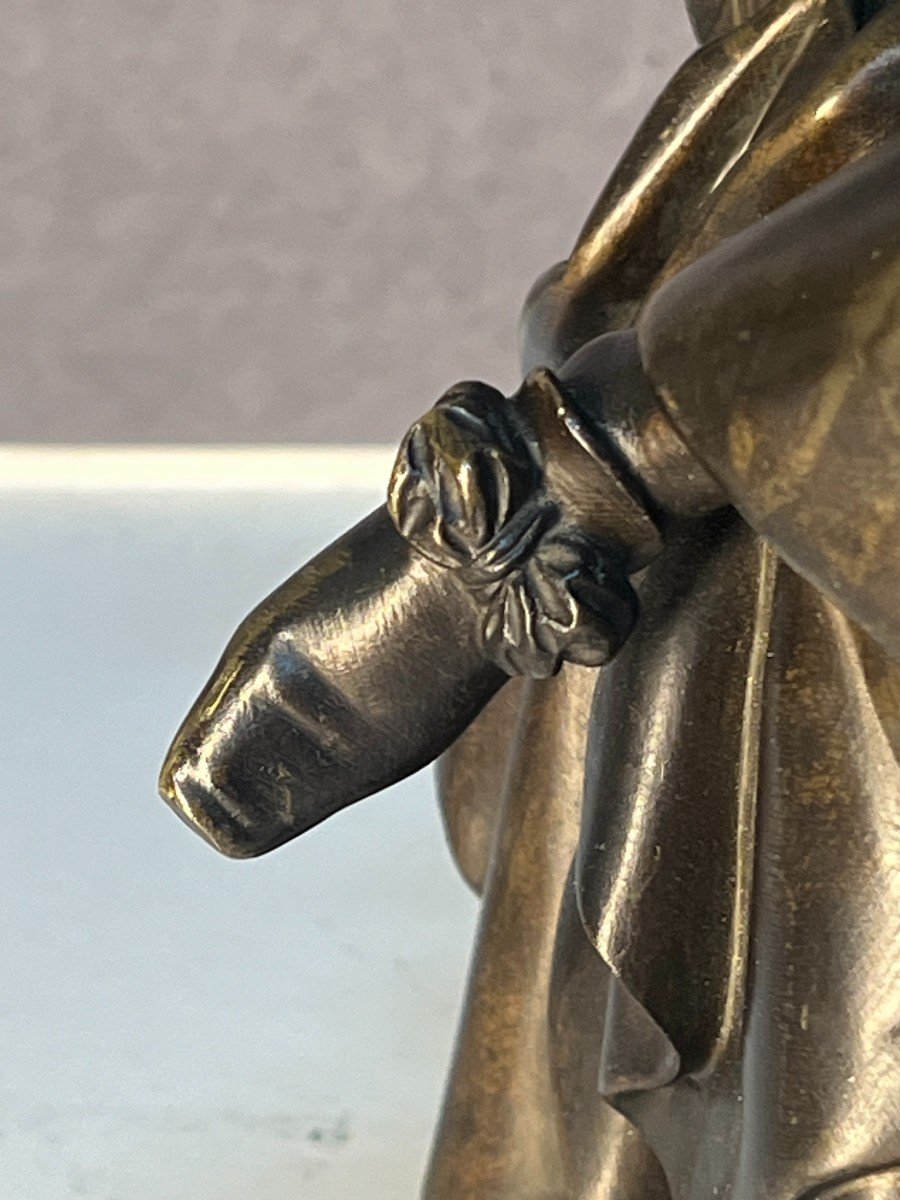
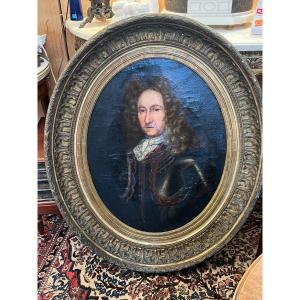
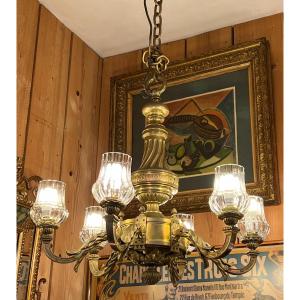
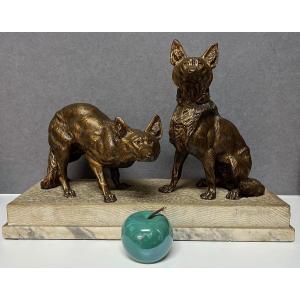

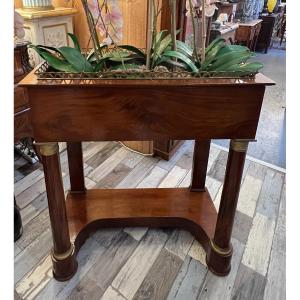
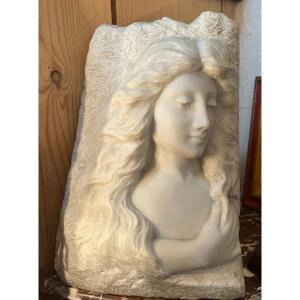





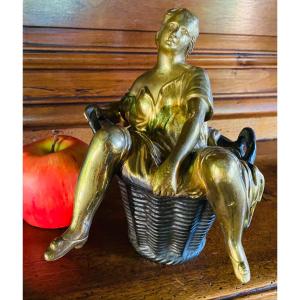



 Le Magazine de PROANTIC
Le Magazine de PROANTIC TRÉSORS Magazine
TRÉSORS Magazine Rivista Artiquariato
Rivista Artiquariato
